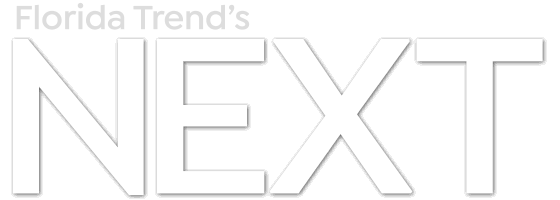Work Smarter and Harder
Very few people end up, in their lives and their careers, where they originally thought they would. This is especially true if you’re the kind of person who seeks new challenges and jumps at new opportunities. One such person is Matt Marsden, Head of Customer Engineering, Defense at Google Public Sector.
Marsden’s career path has been anything but linear, although he’s noticed — in hindsight — that there are through-lines. We asked Marsden to distill his career into a few of those connectors.
1. Say yes.
After high school, I joined the U.S. Navy, hoping to learn a trade at an accelerated pace. It was a scary thing to do in a lot of ways, but the beautiful thing about the military is that you only have to make one decision. After you join, you have significantly less choice, which is surprisingly empowering. That structure helped me to do really hard things that I never would have done voluntarily.
For example, I saw myself as more of an artsy person than a technical one (I had never even owned a computer), but the ASVAB (Armed Services Vocational Aptitude Battery) recommended that I go into the field of cryptology. I graduated at the top of my class and was invited to support the submarine community — something that I had explicitly not wanted to do before that point.
In my seven years on submarines, I was often the only technician in the crew who was trained to work on specific systems. There was no contingency plan for things not working. When you don’t have the luxury of finding another way, you become hyper-focused on your ability to do the thing.
I never would have said yes to this work if I’d thought that I could say no. But I ended up learning so much about myself. I had no idea that I could do those things or perform in that kind of environment.
2. Fail fast.
Fast forward nearly 20 years. I had spent 10 years teaching in Pensacola, used my GI Bill to earn a bachelor’s degree in business, and moved to Maryland to work as a contractor supporting the Department of Defense. Out of nowhere, I was presented with the opportunity to join a software startup. It was a fast-moving, hectic environment, and it was exciting. Although it was a completely new world for me, I became known as the first person to raise my hand to do something new. That paid dividends.
That approach led me to my current position at Google Public Sector. I had been promoted as far as I could go at the startup, but I had gained an appreciation for solving complex problems at scale. Who is better at doing that than Google?
At Google, we have a saying: “Fail fast.” If you’re going to try something new, just do it. The goal is to prove it viable quickly or have it fail quickly so that you can move on to other things. Failure isn’t bad; you always learn from it. And the faster you fail, the faster you get to success.
Because of the high-stakes environment on Navy submarines, I have always found a way to get the job done — but sometimes what I learned in the process was that I was not the person to do it. There are a lot of things that I have volunteered to do that I ended up not being good at. And that’s okay. But you have to say so, so that you can move on to the learning part.
I don’t regret any of the decisions that I’ve made: the ones that worked out or even the ones that didn’t. Every decision I have made, I’ve made completely.
3. Think bigger.
One of the most amazing things about Google is that we apply a concept of “10x thinking” to everything we do: how can we take this effort or idea or solution and make it 10 times bigger or better? Google works at hyperscale; we develop for the world, from sustainable agriculture to protein folding to code that debugs itself.
Google is packed with people who have tremendous intellect and motivation to do new, different things, and the organization is really supportive of that kind of innovation. We have “20% Time,” which is Google’s way of encouraging employees to spend 20% of their working hours developing whatever they want — to shoot at the moon.
The way I approach tests is an analogy for a lot of my career. I do my due diligence and prepare, but when I actually take the test, I just go for it. I don’t sit and stare at a question, and I don’t second guess anything. (But I did learn from experience to go back and do a careful once-over!)
The biggest indicators of probable success seem to be curiosity and hard work. It’s not formal education; it’s not a certification; it is people who respect each other, who are naturally curious, and who aren’t afraid to do the hard work.
Google has three core values: Respect the user, Respect the opportunity, and Respect each other. It’s very simple, but if you use that as your guiding light, it’s really easy to do the right thing.


